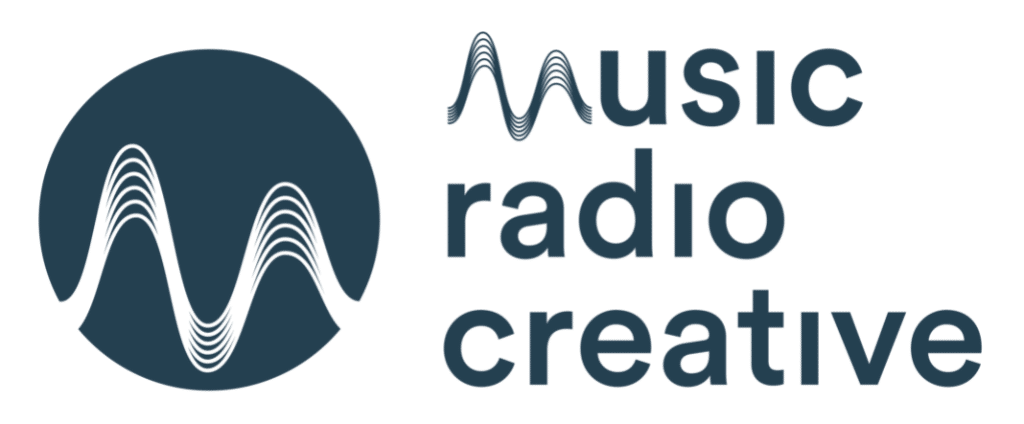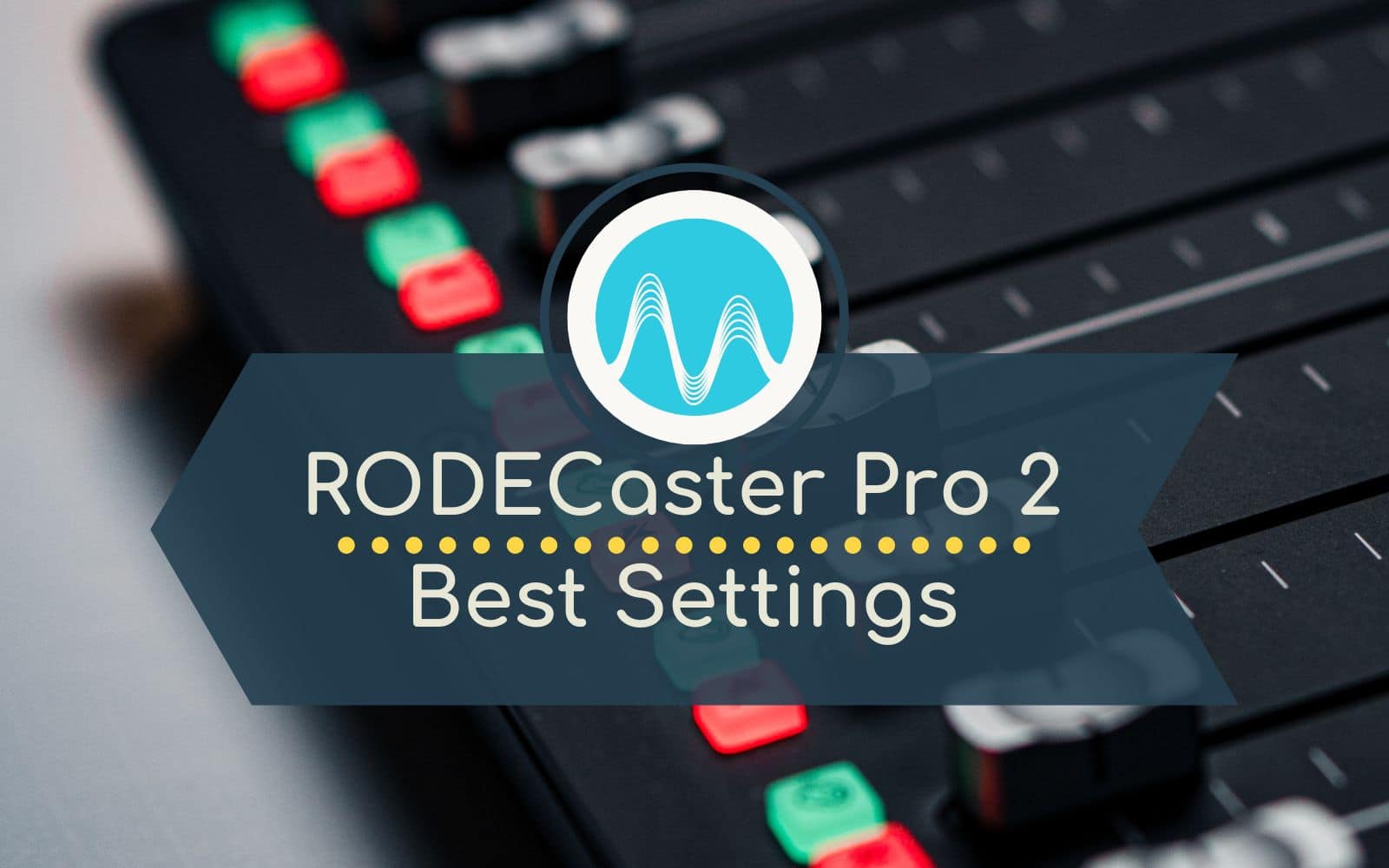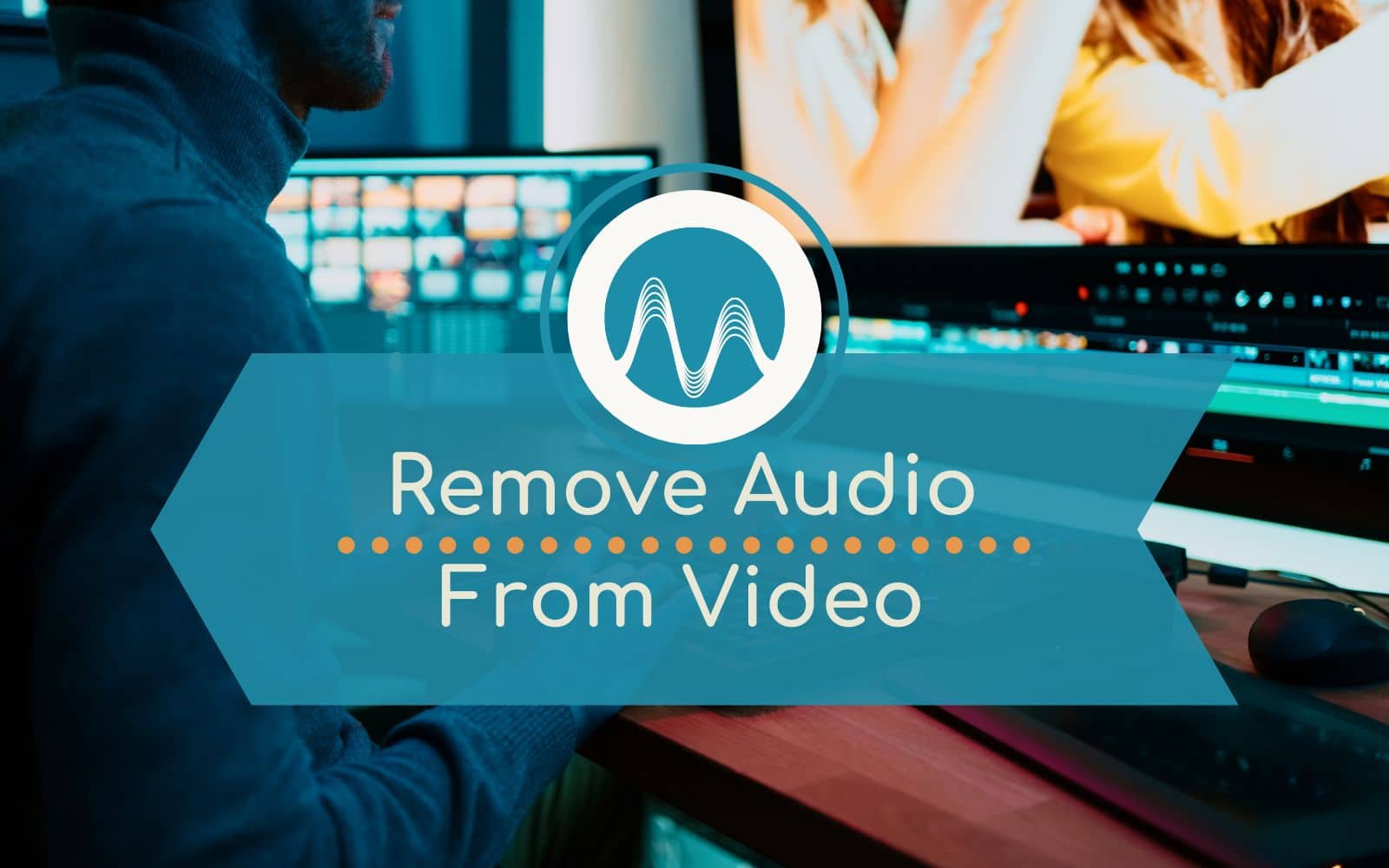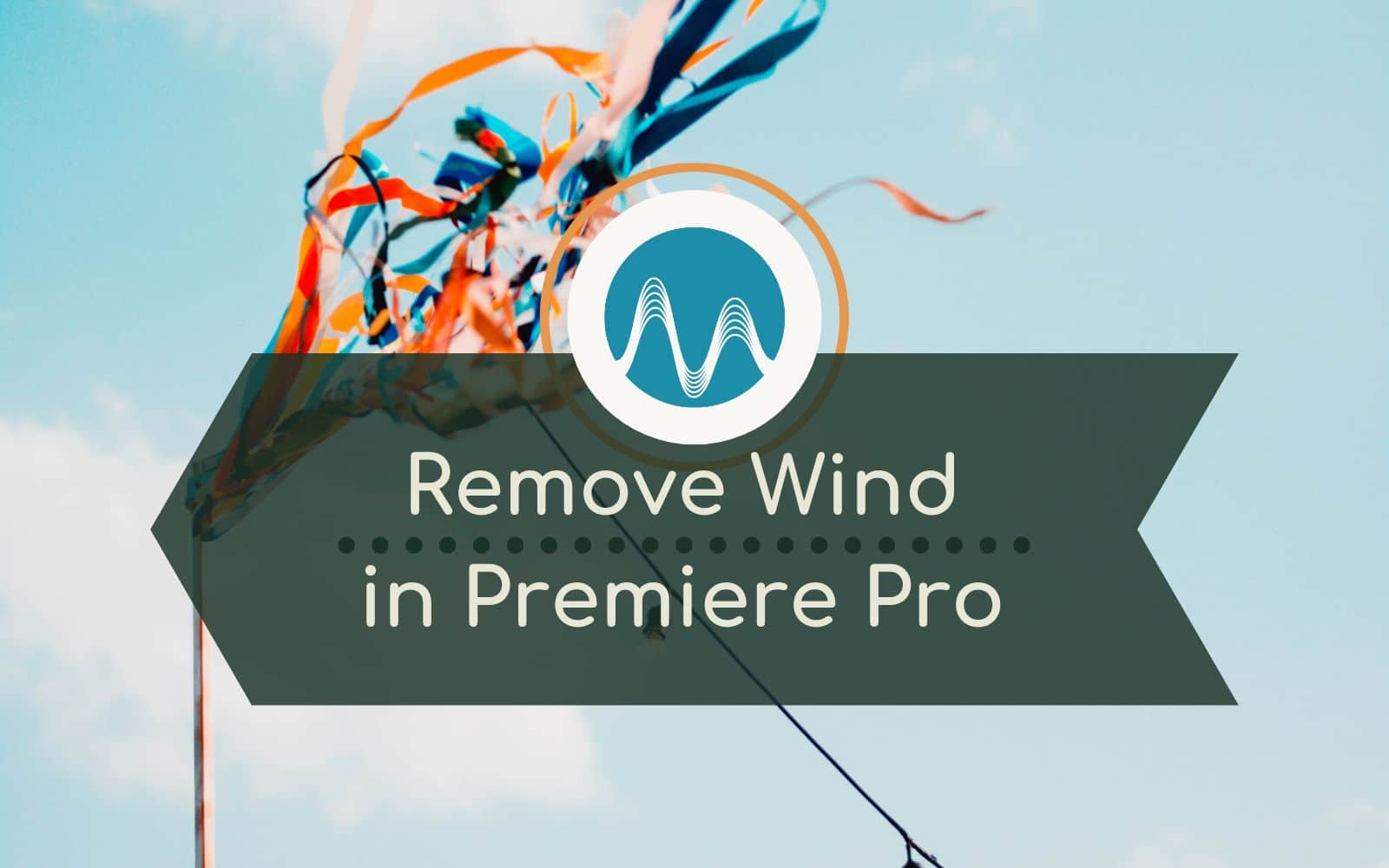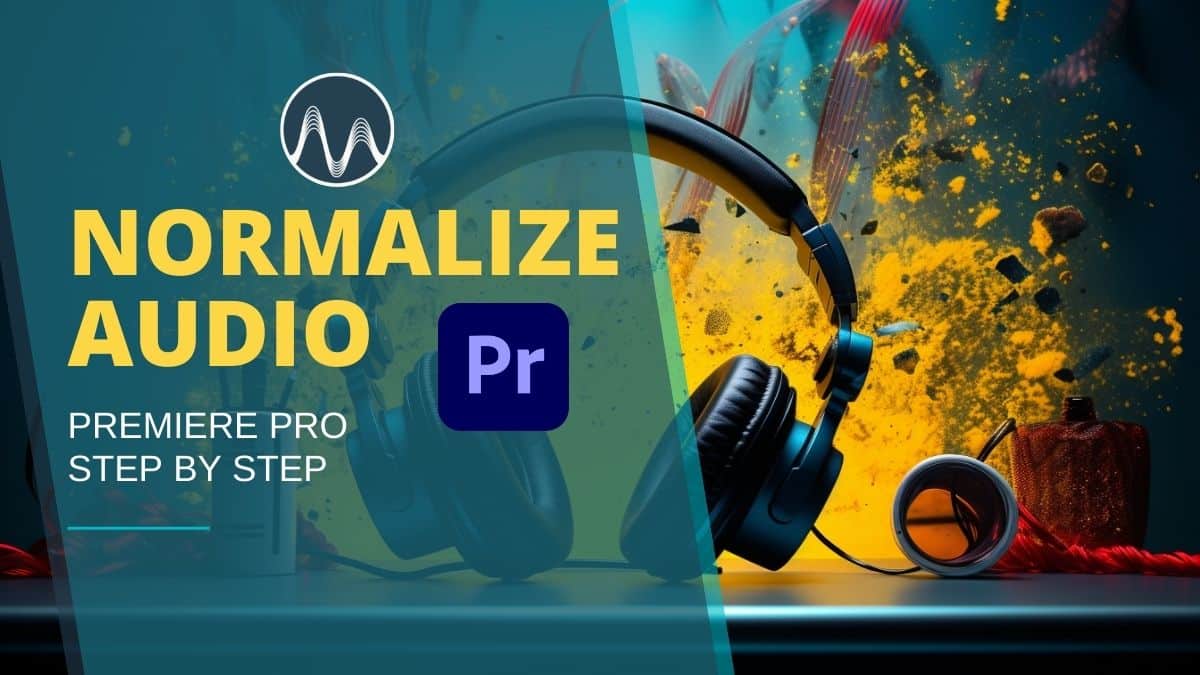Recently, the simple and fascinating RODECaster Pro II has become my integrated audio solution for all my production needs.
It’s pretty good, and I’ve had a few weeks now to use this piece of kit and discover what I find to be the RODECaster Pro II’s ULTIMATE settings – and I’m going to share them with you in this blog!
Remember, though, that your settings might be different to mine as you might have a different microphone, different set up, more room noise or sibilance in a different part of your voice, so this is just an example.
Getting Started
Start by choosing mic channel one on your RODECaster Pro II and you’ll notice there’s a few simple effects to work with that can easily be tweaked to suit your needs:
The High-Pass Filter
In my set up, the High-Pass Filter is completely disabled. My reasoning behind that is that I don’t need to roll off any bass on my microphone. If I do decide to do that, I’ll do it in post-production. It can be great to roll off the low-end frequencies and get rid of rumble and hum (particularly if you’re near roads, airports or similar).
De-Esser
Here, I’ve set my Threshold at -27.0 dB, with the Ratio at 3:1. Attack and Release are as quick as possible. I’ve also added a little bit of Gain to make sure I’m turning down just that much more. The Frequency, for me, is at around 7 kHz. It might be different for you. I would recommend you to do analysis in Adobe Audition to find out what’s best for you.
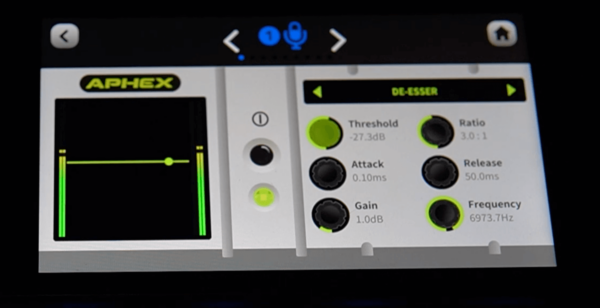
Noise Gate
- I’ve also got a Noise Gate with the Threshold at -45.0 dB. If you’ve got a louder room, you might want to make it slightly higher. Equally if you’ve got a super quiet room, you can turn it right down.
- I have the Attack at around 100.0 ms to give it a bit of leeway before it kicks in.
- The Hold at 50.0 ms (increase this if your words are getting clipped).
- Release at 50.0 ms.
- Range at 30.0 dB (to help the Noise Gate work).
- I leave the Hysteresis at 0.25 (although, I haven’t found this setting super important for my Noise Gate).
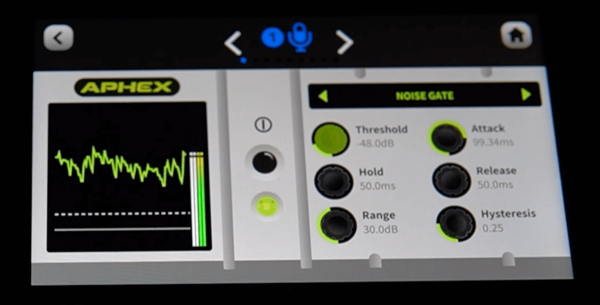
Compressor
Here, I’ve got a light Compressor, with Threshold at -24.0 dB, Ratio at 3:1. This is a great speech compression ratio (any higher would go into radio imaging, any lower, we’re not really compressing). Attack and Release as tight as possible. Make sure to turn those right down, and increase the Gain by about 2.0 dB. This will give it a bit of make-up when it compresses down some of the loudest parts of the speech.
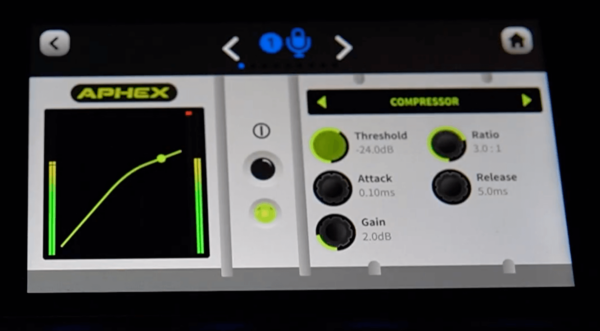
Equalizer
This is the bit everyone loves because it gives that unique studio sound, so I’ve put the High Bell right up at the high-end of about 12,000 Hz to give my voice that nice, crispy sound, with a High Gain of 3.0 dB. I’ve set the Mid Bell to around the 1,450 Hz range with a -1.4 dB Mid Gain (for my voice), and the Low Bell at the low frequencies of 112.4 Hz, with a 0.6 dB Low Gain.
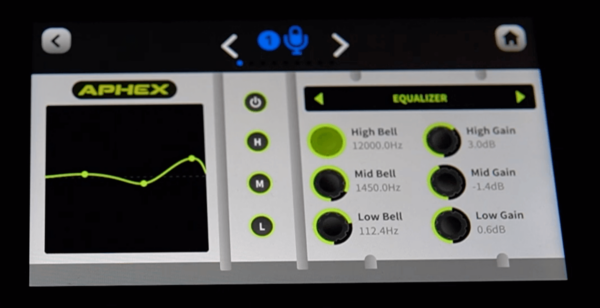
Exciter
This is a real enhancer of the voice, like the Low and High Frequencies on the old DBX units. The Big Bottom is tuned to around 112.2 Hz, with a 20% Drive. The Aural Exciter is working around 2,247 Hz (around the mid to high-end of the voice). And, finally I’ve got 90% Harmonics there to really get a crisp vocal presence.
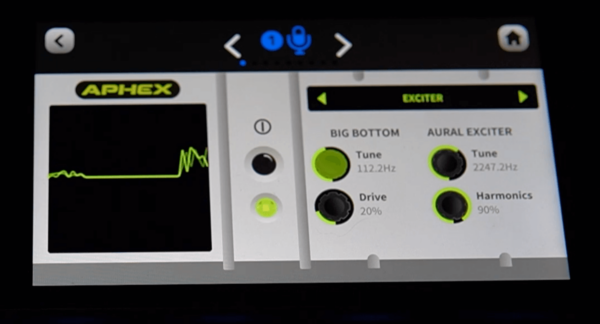
Panning
Panning is left at neutral. I don’t want to be to the left or to the right, I want to be in the centre.
My Thoughts On RODECaster Pro 2
There is no doubt about it. RODE team have listened to creators and came up with an amazing piece of kit. I have only been using it for the past few months but it has already replaced A LOT of the kit in my studio. If you are curious to find what exactly can be replaced then watch this video:
As a hardware for content creators – IT IS GREAT! I would not however recommend voice artists or professional audio creators to ditch their equipment just yet. Make sure to subscribe to my channel. I will be sharing ultimate pro setup for professionals in the next few weeks.
